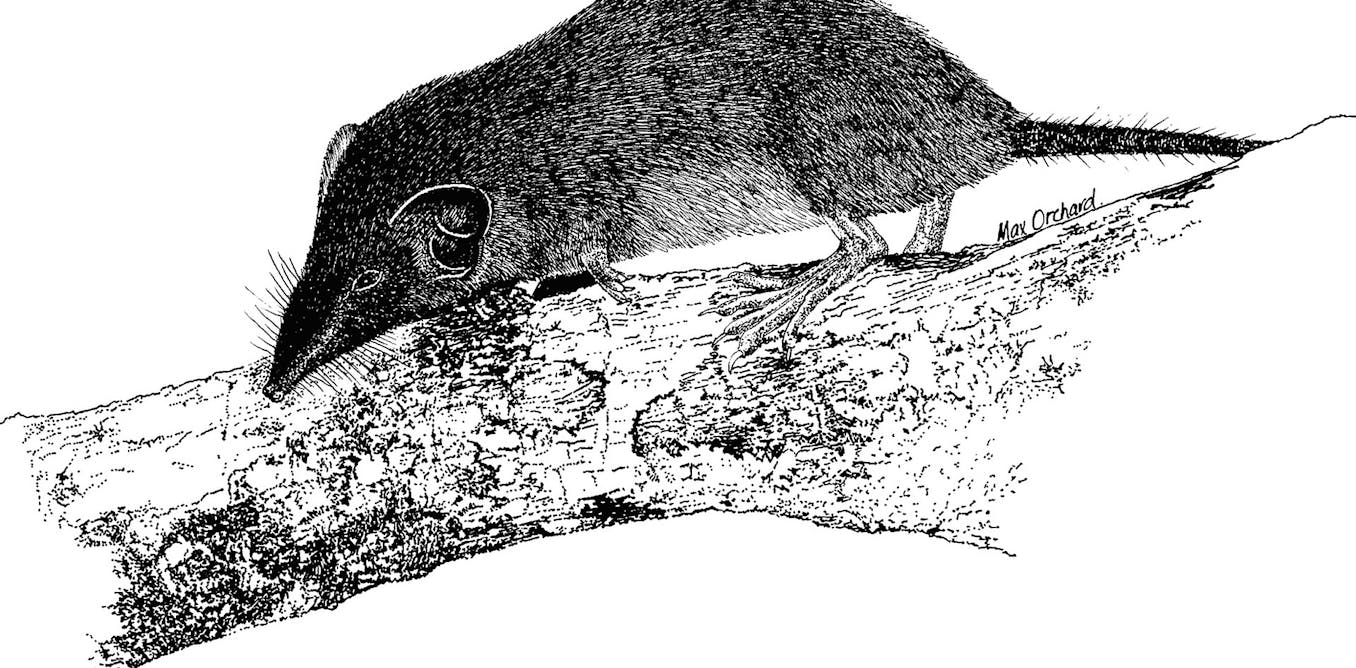How psychedelics work, explained in under 6 minutes | Matthew Johnson
In the video “How psychedelics work, explained in under 6 minutes”, Matthew Johnson, a professor of psychiatry at Johns Hopkins University, delves into the complex world of psychedelics, breaking down how they affect the brain and lead to profound psychological experiences. Johnson explains that every psychological experience has a biological correlate, meaning that psychological and biological processes are interconnected. When it comes to psychedelics, the question arises: do they work by hitting brain receptors or because of the experiences they generate?
Psychedelics have a real biological effect on the brain, but the psychological experiences that follow are equally important. They are considered mind-manifesting drugs and non-specific amplifiers, impacting one’s sense of reality and self. Johnson discusses various types of psychedelic compounds and their mechanisms of action, shedding light on their impact on serotonin and glutamate systems in the brain.
Furthermore, he explores how psychedelics can enhance communication across different brain regions and increase neuroplasticity, leading to a greater ability to establish a new and more optimal normal state. The discussion also touches upon the psychological effects of the experience, making the case for psychedelics being more akin to psychotherapy than traditional psychiatric medications.
In the context of the current mental health crisis, psychedelics have shown promise in addressing mental disorders, including addiction. Johnson emphasizes that while they may not be a miracle cure for everyone, their potential warrants further exploration in mental healthcare. This video provides a fascinating insight into the world of psychedelics and their potential to revolutionize mental health treatment.
Watch the video by Big Think
– Every psychological experience has a biological correlate: these are two sides of the same coin. You see the color green, there’s something happening in your brain that’s coding that experience of the color green. So, with psychedelics, the biggest divide is whether we’re talking about on the psychological side or the biological side.
Does it work by hitting these brain receptors and then having other effects? Or does it work because of the experience? Clearly, there’s this very real biological effect. Something dramatic happens to the brain when you put the psychedelic in the system, but then someone has this experience,
And when they change their life because of that, that ends up sounding more like they went through a really good course of psychotherapy. So, psychedelics are really interesting at that bridge between the biological and the psychological. What ‘psychedelic’ means from its linguistic roots is “mind manifesting.” The idea that these are mind manifesting-
That’s consistent with this other notion that these are non-specific amplifiers. In other words, you could have a euphoric experience. You could have a hellish experience. Also, terminology is so difficult in this area. Psychedelic can be used to refer to what are called the “classic psychedelic compounds”: psilocybin, which is in magic mushrooms, LSD,
DMT, which is in ayahuasca, mescaline, which is in peyote. Those are the classic psychedelics. They affect a particular type of serotonin receptor and that’s their primary mechanism of action. But then you have other drugs that I think it’s appropriate to call them psychedelic; other scientists will disagree.
So for example, MDMA will work by releasing serotonin. So, that’s a different mechanism. And you have other drugs such as ketamine and PCP. So, that affects the glutamate system in the brain primarily rather than the serotonin system. So, what does psychedelic mean then if it refers to multiple pharmacological classes of drugs
That work in different ways? And the answer for me is that these are all drugs that can have a profound effect on one’s sense of reality, including one’s sense of self. The huge question that’s always thrown out is: ‘How do these psychedelics work?’
And you can just come at that from so many different angles. Now to go down that biological path, what’s happening? There’s a lot going on. For example, psilocybin, which people may know is the active agent in so-called “magic mushrooms.” Once it’s circulating through your blood, after you’ve eaten some of it,
It actually converts to a related compound called psilocin, which is the thing that’s actually hitting the brain receptors. And it activates a subtype of serotonin receptor. So, we have lots of different types of serotonin receptors in our brain. One is called the ‘serotonin 2A’ receptor, and psilocybin and the other classic psychedelics,
Can latch onto that the same way that our serotonin latches onto these brain receptors. So, psilocybin affects serotonin, but then serotonin affects the glutamate system. And then at another level, you have this massive increase in communication, across these different silos in the brain. That is probably an important level of analysis
That is underlying at the psychological level: patients who have claims of insight viewing themselves from a radically different perspective, from a different lens, and based on animal research, there also seems like there may be increased ‘neuroplasticity’ in the system so that in the days following the psychedelic experience,
People are more primed to learn new things. There’s a greater ability to establish a new and more optimal normal state. So, there’s seemed to really be something important about ‘the nature of the experience’ that people have during these sessions. It’s not just about hitting a certain type of serotonin receptor in the brain.
There’s something about the psychology of the experience that unfolds during that session that tends to be important- which is in some sense what makes the psilocybin treatments, a bit more like psychotherapy than traditional psychiatric medications where you just take the pill and you forget it. There’s some interacting reasons
Why the psychedelic renaissance is happening now. Our society has been in a mental health crisis, and it’s been stagnating. Pharmaceutical companies don’t make the investments in new mental healthcare treatments, like they did decades ago. I mean, the best medical treatments that we have for many addictions, are substitution treatments,
Also known as ‘agonist treatments.’ And I think these are good, but when you don’t see success, I would say it’s probably ’cause they fail to get to the roots of these mental disorders, including addiction. That’s why I think psychedelics have been so successful. Nothing is gonna be a miracle cure for everyone-
Nonetheless, they have so much promise, and we have to have that balance. I think that’s more possible today. – Get smarter, faster with videos from the world’s biggest thinkers. To learn even more from the world’s biggest thinkers, get Big Think+ for your business.
Author Video Description
How psychedelics work, explained by Johns Hopkins professor Matthew Johnson.
Subscribe to Big Think on YouTube ► https://www.youtube.com/channel/UCvQECJukTDE2i6aCoMnS-Vg?sub_confirmation=1
Up next, Psychedelics: The scientific renaissance of mind-altering drugs
► https://youtu.be/5T0LmbWROKY
Humans have been consuming psychedelic substances for millennia, but only in the past century have we made significant progress in understanding how they affect the brain and our psychology.
We have learned, for example, that psychedelic drugs like psilocybin, LSD, and DMT cause psychedelic experiences primarily by affecting a particular type of serotonin receptor, while other drugs like ketamine and PCP primarily affect the glutamate system.
But there remain open questions about how these biological effects contribute to profound psychological changes in people who take psychedelics. One answer seems to center on how the drugs spark communication between different brain regions. What’s more, psychedelics seem to encourage greater neuroplasticity, meaning the brain becomes primed to learn new things in the wake of a psychedelic experience.
Check out this Big Think interview with Matthew Johnson, a professor of psychiatry at Johns Hopkins University who explains how psychedelics work, and what researchers hope to uncover about the substances in the future.
Read the video transcript ► https://bigthink.com/series/explain-it-like-im-smart/how-psychedelics-work/
———————————————————————————-
About Matthew Johnson:
Matthew W. Johnson, Ph.D., is The Susan Hill Ward Endowed Professor of Psychedelics and Consciousness Research at Johns Hopkins. Working with psychedelics since 2004, he is one of the world’s most widely published experts on psychedelics. He has published research on psychedelics and mystical experience, personality change, tobacco smoking cessation, cancer distress treatment, and depression treatment. In 2021 he received as principal investigator the first grant in 50 years from the US government for a treatment study with a classic psychedelic, specifically psilocybin in treatment of tobacco addiction. He is also known for his expertise in behavioral economics, addiction, sexual risk behavior, and research with a wide variety of drug classes. He’s been Interviewed by Anderson Cooper on 60 Minutes, the New York Times, the Washington Post, the Wall Street Journal, CNN, NPR, Fox News, Fox Business News, BBC and in Michael Pollan’s book How to Change Your Mind.
———————————————————————————-
Read more of our stories on psychedelics:
AI maps psychedelic “trip” experiences to regions of the brain – opening new route to psychiatric treatments
► https://bigthink.com/health/ai-maps-psychedelic-trip-in-brain/
Psychedelic drugs: how to tell good research from bad
► https://bigthink.com/health/psychedelic-drugs-research/
Metaphysics and mushrooms: Psychedelics can change how you think about the universe
► https://bigthink.com/neuropsych/psychedelics-mushrooms-metaphysics/
———————————————————————————-
About Big Think | Smarter Faster™
► Big Think
The leading source of expert-driven, educational content. With thousands of videos, featuring experts ranging from Bill Clinton to Bill Nye, Big Think helps you get smarter, faster by exploring the big ideas and core skills that define knowledge in the 21st century.
► Big Think+
Make your business smarter, faster: https://bigthink.com/plus/
———————————————————————————-
Want more Big Think?
► Daily editorial features: https://bigthink.com/popular/
► Get the best of Big Think right to your inbox: https://bigthink.com/st/newsletter
► Facebook: https://bigth.ink/facebook
► Instagram: https://bigth.ink/Instagram
► Twitter: https://bigth.ink/twitter
About Big Think
Big Think is the leading source of expert-driven, actionable, educational content — with thousands of videos, featuring experts ranging from Bill Clinton to Bill Nye, we help you get smarter, faster. Get actionable lessons from the world’s greatest thinkers & doers. Our experts are either disrupting or leading their respective fields.
Video “How psychedelics work, explained in under 6 minutes | Matthew Johnson” was uploaded on 10/28/2022 to Youtube Channel Big Think





































